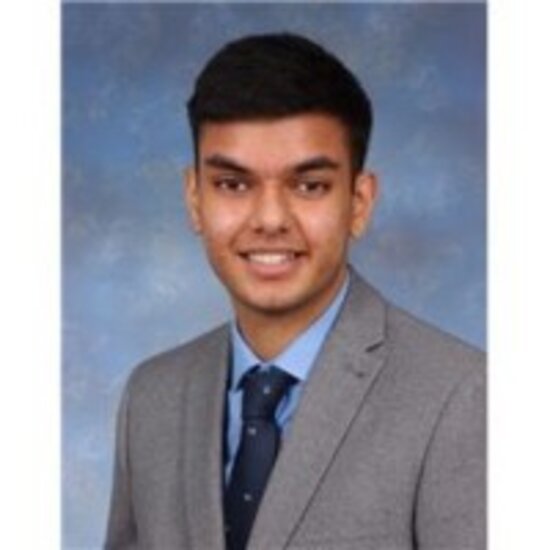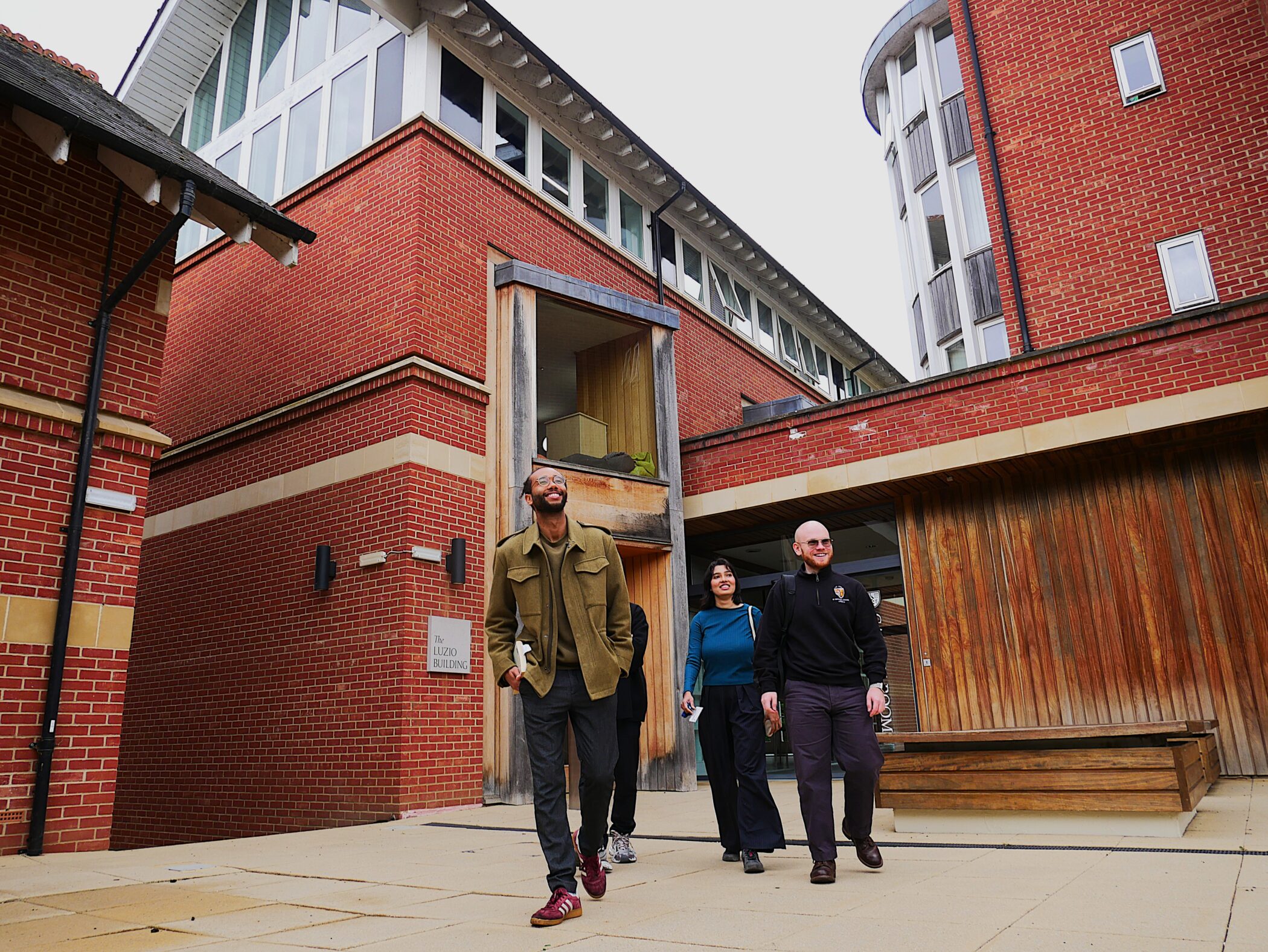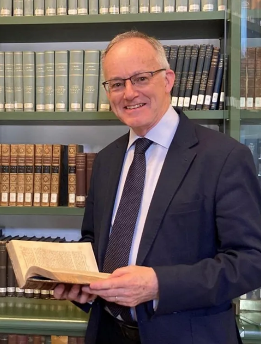Rohan is a Land Economy undergraduate from Warwick studying at St Edmund’s College. He has a strong interest in entrepreneurship, and founded multiple initiatives, including a global educational consultancy company and a foundation tackling child literacy deprivation. Rohan is also the founder and president of the Cambridge University Punjabi Society.
Can you tell us about your personal journey to Cambridge and what life for you looked like before you joined the University?
I grew up on a council estate in Leamington Spa. Council estate to Cambridge. Not a bad story! Fortunately, I was privileged enough to attend Warwick School – a fantastic boys’ school – on a full academic scholarship alongside the support of a bursary. I truly relished my time there. Not only did I make lifelong friends, but the school also created an environment that encouraged us to explore our intellectual curiosities from an early age. This spurred me to foster an interest in a range of academic disciplines, but in particular, I was drawn to Economics. So much so that I decided to start up an Economics society at school. I was always a driven student, so Cambridge was definitely a dream of mine. Alongside my studies, I was an enthusiastic cricket, hockey and basketball player. I also took a gap year before coming to university, which gave me an opportunity to do some solo travelling around Europe.
Why did you choose to study at St Edmund’s College?
So I didn’t actually apply directly to St Edmund’s. I submitted an open application, was assigned to Pembroke and then got put in the winter pool after my interview with them. Eddies swooped in, picked me up, and here we are today. I am so thankful for that decision, as I truly couldn’t picture myself at any other college. The friendly staff, the family-like environment, the great location and having peers that have come from all over the world would make anyone want to choose St. Edmund’s and looking back it would have been a great choice for me to have applied here directly. I see the college and the university as a place where the best of the best come to
learn, debate, and push the boundaries of knowledge. With world-class educators at the forefront of their fields, I have had the privilege of engaging with thought-provoking ideas and cutting-edge research. More than just academic excellence, St Edmund’s has given me the space to express myself, explore my intellectual curiosities, and develop a deeper understanding of the world around me. It’s an environment that pushes you to grow, think critically, and aspire to make an impact.
How did you find the application process?
Oxbridge is touted for its competitive and arduous application process, and truth be told, I did find it challenging at times. I made sure to prepare thoroughly in order to do well in my GCSEs and achieve good predicted grades for my A-Levels. The summer before applying was spent exploring various super-curriculars related to my course – whether that be books, academic articles, essay competitions, and so on. Thankfully, I was fortunate enough to have a range of wonderful people who were at Oxbridge who supported me through each step of the preparation process, and I owe them a great deal of gratitude.
The interview itself, whilst nerve-wracking, was an extremely enjoyable conversation that explored different topics around my chosen subject. My main advice for anyone applying is to explore the parts of your course that you find most interesting. It is
imperative that you try to enjoy the admissions process.
How did you prepare for your admissions assessment?
When I applied, the admissions test that I had to take was the Thinking Skills Assessment (TSA). I recognised that this was quite a pivotal part of the application process, and so I made sure to put in the hours to do as many past papers that I could get my hands on. Practicing these questions under timed conditions and being very strict with how I marked them really helped. When I ran out of TSA papers, I turned to other resources, such as TSA question books and other admission tests that had a similar format of questions to the TSA.
What motivated you to choose your field of study?
I’m pretty sure this was one of my interview questions – haha! The broad, interdisciplinary structure of the course particularly stood out to me. Being able to branch out into other academic disciplines while continuing to deepen my interest in Economics drew me to Land Economy. The versatility of the course allows me to continue to explore my economic curiosity as well as delve into other interests of
mine such as law, real estate, the environment and human geography. I really appreciate that the course allows me to explore topics that are not readily taught elsewhere.
Can you share a memorable experience from your time at St Edmund’s College so far that has had a significant impact on you?
There are way too many to document here, but one common thread between them all was definitely the people. I’ve had the opportunity to meet a wide range of individuals from all walks of life and from all over the world, many of whom remain very close friends to this day – even after they’ve left. The memories, nuggets of wisdom, and countless laughs shared have made my time here truly unforgettable.
Are there any professors, mentors, or classmates who particularly inspire or influence you? If so, how are they impacting your personal or professional development?
Dr Hannah Holmes – I couldn’t have asked for a better Director of Studies. Cambridge is renowned for its arduous and demanding workload, and having someone who is not only extremely understanding but also helps me strive to be the best academic and well-rounded individual that I can be is truly invaluable.
How has attending St Edmund’s College enabled you to thrive?
During my time at St. Edmund’s, and Cambridge as a whole, I’ve made a concerted effort to immerse myself in a variety of activities and experiences. One particularly impactful endeavour during my time at college has been serving as the President and Captain of the St. Edmund’s Basketball Team. The role allowed me to develop my leadership, teamwork, and organizational skills while forming meaningful connections with a fantastic group of individuals. Moreover, the culture at Eddies definitely pushed me to get involved in a range of society committee’s around the university. For instance, this year I founded and currently serve as the President of the
Cambridge University Punjabi Society, which I hope to be a platform to champion my culture at university. A highlight of this journey was the opportunity to interview Grammy award nominated producer ‘Steel Banglez’ at the Cambridge Union. Truly a surreal moment. Additionally, I contributed as a committee member for the Cambridge University Finance and Investment Society during my time at university, which was particularly rewarding. My time at St. Edmund’s has also enabled me to pursue my entrepreneurial
interests, including being the founder of a global educational consultancy start-up, as well as a foundation to help tackle child literary deprivation in the UK.
What values are you learning at St Edmund’s College and how do you think your experiences at Cambridge are shaping you as a person?
The two that spring to mind are ‘The value of hard work’ and ‘Taking the initiative’. The people you meet here definitely shape you, and definitely for the better. Cambridge is extremely competitive and so you are always kept on your toes. Whilst at school our motto was ‘Altiora Peto’, which means to seek the highest things, and that sentiment has been echoed whilst I’m here. Seeing the hard work of those around you definitely pushes you to go outside of your comfort zone and to do more. Your world-view is expanded and being at a place like Cambridge makes you strive to take the opportunity life presents itself, but more importantly, create your own opportunities and bend life to your will. I’ve usually seen that the things that I’m most proud of have been things that I took the initiative for. I’ve realised rarely in life are things handed to you – and even if they are, what’s the fun in that?
What are your plans beyond graduation and how do you see them contributing to a better future for individuals, societies and the world globally?
At present, I run a global educational consultancy company called ‘The Cambridge Tutor’, and I hope to continue expanding this venture after graduating. My journey into the world of entrepreneurship stemmed from my interactions with a range of different individuals at college and the university as a whole. When considering how my work contributes to a better future for individuals and society, one of my core missions is to improve educational access and equity. To address this, I have authored books on various educational topics, including demystifying the Oxbridge application process, making it more transparent and accessible for aspiring students. Additionally, I deliver workshops to schools across a wide range of backgrounds, ensuring that students from all walks of life have the resources and guidance they need to aim high. Through my work with the Punjabi Society, we are laying the
foundations for outreach initiatives targeted at the Punjabi community across the UK.
Our goal is to provide Oxbridge workshops and create opportunities for current Cambridge students to give back, offering mentorship and insights to those around the country who may feel disconnected from the application process. Many students from my own background still perceive Oxbridge admissions as opaque and inaccessible, often shrouded in uncertainty, and so I am committed to breaking down these barriers and making the process more transparent, ensuring that talent and ambition – not background or circumstance – determine who gets through the doors of institutions like Cambridge.
In addition, I founded the Areena Dhillon Foundation to combat child literacy deprivation in the UK. With approximately 8.6% of children lacking access to a single book at home, our mission is to change that – one book at a time. Our goal is to distribute 10,000 books to children and schools, ensuring that every child has the opportunity to engage with reading during their childhood. Looking ahead, our long-term vision extends beyond this. We aim to establish scholarships at top private schools for exceptionally talented students who face challenging home environments, giving them access to world-class education. Beyond the UK, our next
step is to build schools in underfunded and impoverished areas of India, providing quality education to children who need it most.
I’ve never been one to look towards a Plan B, but the world of finance certainly intrigues me as a potential alternative avenue that I could look towards after graduation. It’s a common route for many Land Economists, and one that aligns with
my interests and skill set.
What advice would you give prospective students thinking of choosing St Edmund’s College?
Don’t block your own blessings. There are countless prospective students who disqualify themselves before anyone else does – often without valid reason – merely due to a lack of self-belief. Regardless of one’s background, I strongly encourage anyone that is interested in taking that step to apply, even if it feels like a distant dream. St. Edmund’s attracts a diverse range of applicants from various educational and geographical backgrounds. Eddies strives to make the application process as transparent as possible. So, even if you doubt your chances, I still highly recommend applying – there is no downside to giving it a shot. It could genuinely change your life. Some students worry that Cambridge’s prestige creates an environment where they might not fit in. In reality, that could not be further from the truth. Everyone not only finds their people but also finds who they are and their interests whilst being at Cambridge.





